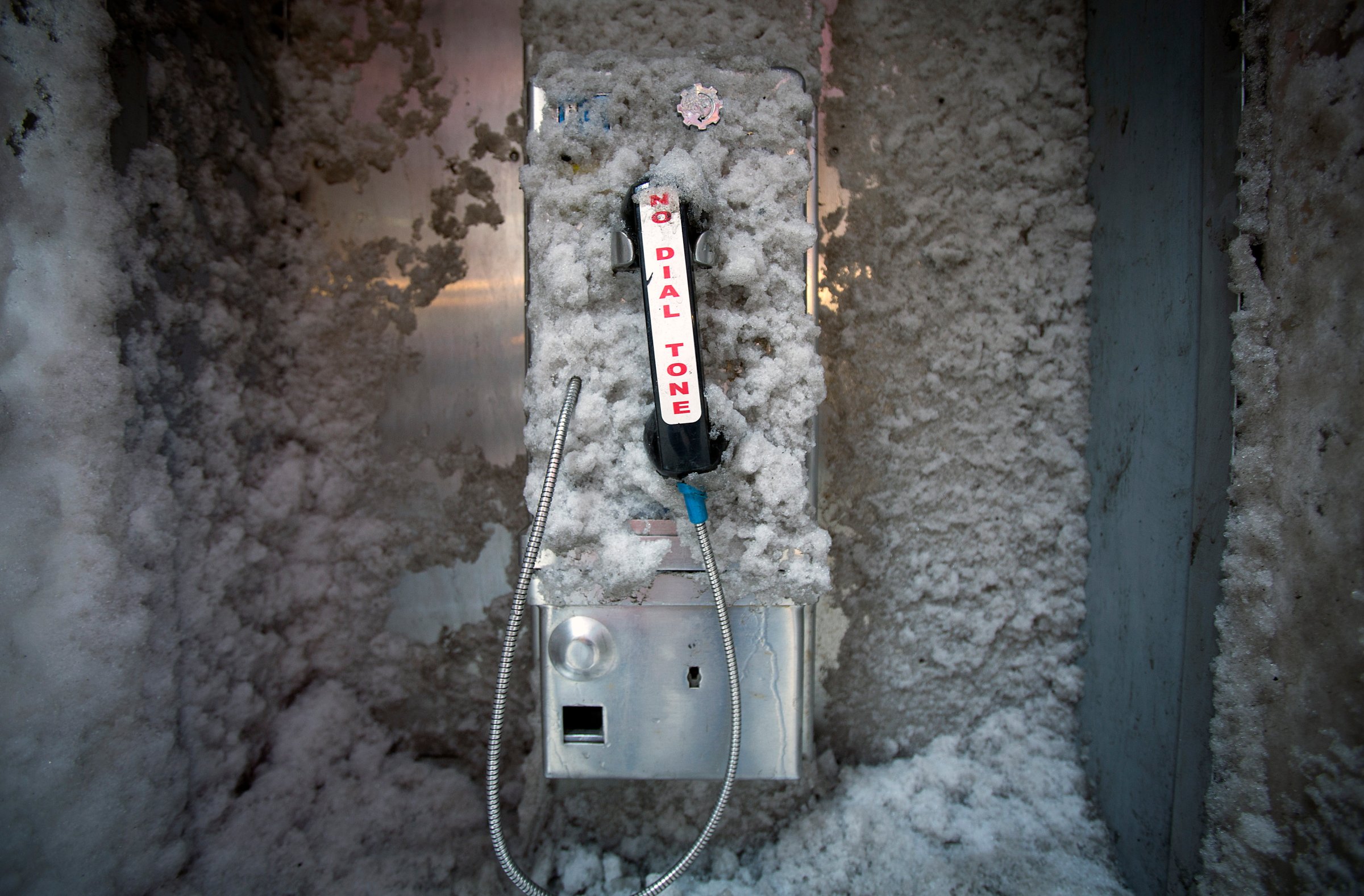
Pay phones, what are they good for?
Creating one of the largest free public wi-fi networks in the country, of course. That was the vision laid out by New York City Mayor Bill de Blasio on Thursday, in an announcement that could transform those familiar relics of 20th century communication into next-generation broadband hubs.
New York City has issued a request for proposals designed to create a network of Internet hot spots that will blanket the Big Apple’s five boroughs with free wireless Internet access. If successful, the effort could provide a blueprint for other big cities, at a time when municipalities around the country are racing to provide better Internet connectivity for citizens.
The city has been toying with the concept of transforming pay phones into wireless hot spots for years. The previous administration of Mayor Michael Bloomberg launched a pilot project to explore the idea, but de Blasio’s announcement injects new energy into the plan.
“For years, the question was, ‘What to do with payphones?’ and now we have an answer,” de Blasio said in a statement. “By using a historic part of New York’s street fabric, we can significantly enhance public availability of increasingly-vital broadband access, invite new and innovative digital services, and increase revenue to the city — all at absolutely no cost to taxpayers.”
Today, New York City’s pay-phone kiosks basically function as advertising billboards, some of which contain usable pay phones. Under current city contracts, three big companies — Van Wagner Kiosk Advertising, Titan Outdoor Communications and Telebeam Telecommunications Corporation — control 84% of the kiosks, according to the New York Times.
Those contracts expire this year. Under de Blasio’s plan, new contracts would be issued “for the installation, operation, and maintenance of up to 10,000 public communication points distributed across the five boroughs,” the city said in a statement.
“Mayor de Blasio has made making New York City the most wired city in the world a policy,” says Andrew Rasiej, Chairman of the NY Tech Meetup and a longtime advocate on city tech issues. “As a result, the administration wants to take advantage of every feasible piece of city-owned infrastructure to make that possible.”
The city says the new franchise will produce $17.5 million in guaranteed annual revenue for city coffers through the end of June 2026. Potential franchisees could include big wireless companies like AT&T or Verizon Wireless, which would make money through the existing billboards as well as digital advertising.
Last year Google introduced a plan to provide free public wi-fi in the southwest Chelsea neighborhood near its mammoth headquarters.
In addition to free wi-fi, the revamped kiosks — which could contain solar-energy cells — will continue to offer traditional phone service, as well as free 911 and 311 calls. They could also contain free cell-phone-charging stations as well interactive touch screens that provide local information or facilitate business transactions.
“We’re very happy to see this administration take such a bold step forward in promoting ubiquitous free WiFi Internet access,” Dana Spiegel, Executive Director of NYCwireless, said in a statement. “If this is any indication of things to come, we’re very excited about the city’s commitment to open, competitive and innovative solutions to bring the Internet to everyone.”
More Must-Reads from TIME
- Donald Trump Is TIME's 2024 Person of the Year
- TIME’s Top 10 Photos of 2024
- Why Gen Z Is Drinking Less
- The Best Movies About Cooking
- Why Is Anxiety Worse at Night?
- A Head-to-Toe Guide to Treating Dry Skin
- Why Street Cats Are Taking Over Urban Neighborhoods
- Column: Jimmy Carter’s Global Legacy Was Moral Clarity
Contact us at letters@time.com